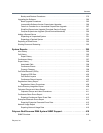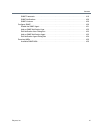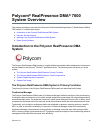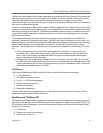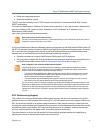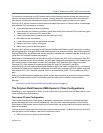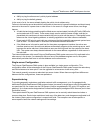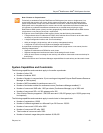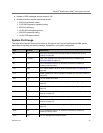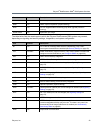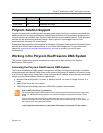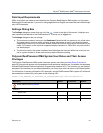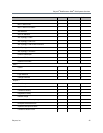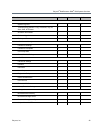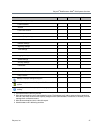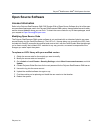
Polycom
®
RealPresence DMA
®
7000 System Overview
Polycom, Inc. 21
● Number of IRQ messages sent per second: 100
● Number of history records retained per cluster:
500,000 registration history
2,000,000 registration signaling history
500,000 call history
12,500,000 call signaling history
200,000 conference history
10,000 CDR export history
System Port Usage
The table below lists the inbound ports that may be open on the Polycom RealPresence DMA system,
depending on signaling and security settings, integrations, and system configuration.
Port Protocol Description
22 TCP SSH. Only available if Linux console access is enabled (see Security
Settings on page 50).
53 TCP/UDP DNS. Only available if the embedded DNS server is enabled (see
Embedded DNS on page 274).
80 TCP HTTP. Redirects to 443 (HTTP access is not allowed). Disabled in
maximum security mode.
123 UDP NTP. Only available if an NTP server is specified (see Time Settings on
page 69).
161 UDP SNMP. Default port; can be changed or disabled (see Configure SNMP on
page 420).
443 TCP HTTPS. Redirects to 8443.
1718 UDP H.323 RAS. Default port; can be changed (see Signaling Settings on
page 72).
1719 UDP H.323 RAS. Default port; can be changed (see Signaling Settings on
page 72).
1720 TCP H.323 H.225 signaling. Default port; can be changed (see Signaling
Settings on page 72).
4449 TCP LDAP. OpenDJ replication (superclustering).
5060 TCP/UDP Unencrypted SIP. Default port; can be changed or disabled (see Signaling
Settings on page 72).
5061 TCP SIP TLS. Default port; can be changed (see Signaling Settings on
page 72).
8080 TCP HTTP. Redirects to 443 (HTTP access is not allowed). Disabled in
maximum security mode.
8443 TCP HTTPS. Management interface access.



